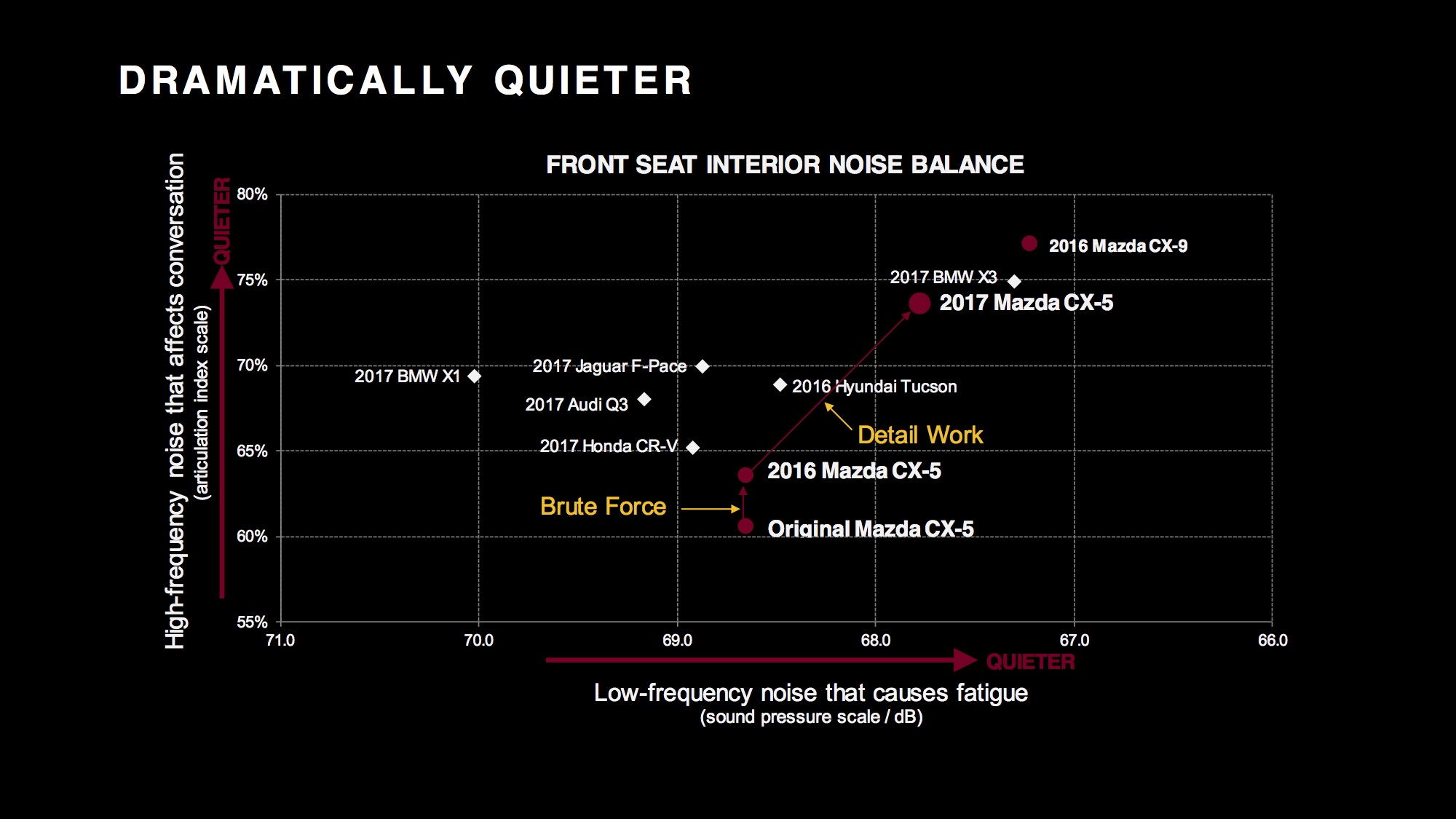- :
- 2017 CX-5 GT
It doesn't. The guy's just blowin' smoke.
The CVT kicking the bucket in my 2011 Nissan Rogue and the accompanying $5000 repair bill is the reason I'm in a 2017 CX-5.
It doesn't. The guy's just blowin' smoke.
The CVT kicking the bucket in my 2011 Nissan Rogue and the accompanying $5000 repair bill is the reason I'm in a 2017 CX-5.
Can anyone point to documentation that shows that CVTs are failing at an abnormal rate?
Lots of people hate them for how they respond and how they sound, but that's unrelated to reliability.
The only conclusion you can make from that is that your wife's Nissan CVT failed, as stated. It implies nothing about CVTs in general. It's an anecdote. Perhaps Nissan's design had problems. Or perhaps you were unlucky. [I will not comment on Nissan in general, but some might.]
Can anyone point to documentation that shows that CVTs are failing at an abnormal rate?
Lots of people hate them for how they respond and how they sound, but that's unrelated to reliability.
I am torn between the 2018 Mazda CX5 and the 2018 Honda CRV. I own a 2016 CX5 but I am selling it. I love Mazda but the 2018 CRV has really upped the game and even Motor Trend gave it the CRV of the year award, beating out the CX5.
I am torn between the 2018 Mazda CX5 and the 2018 Honda CRV. I own a 2016 CX5 but I am selling it. I love Mazda but the 2018 CRV has really upped the game and even Motor Trend gave it the CRV of the year award, beating out the CX5.
The CX5 looks better , but the CRV is faster, has more interior room, gets better MPG, has better Infotainment system, and Honda does have a better long-term reliability than Mazda. Not that Mazda is bad but Honda is a little better.
I will be doing a lease deal and so far the lease deals are coming in identical to the CX5 (AWD) and the CRV (AWD). Around $390 per month for 3 years.
I know this is a Mazda forum but which is the better CUV?
Nissan had to extend their power train warranties out to 100k due to the CVT failures. Companies don't do this because its a financially sound idea.
However, I'm sure the later designs are more reliable.
Does the 2017 CX5 have the acoustical front glass and better sound proofing?
Will the tow hitch from a 2016 fit a 2017 CX5?
Does the 2017 CX5 have the acoustical front glass and better sound proofing?
Will the tow hitch from a 2016 fit a 2017 CX5?

Just reading your first post? CRV.
Or do you want us to talk you out of it because you REALLY like the CX-5 more? LOL

I am NOT a fan of the CVT transmission. I drove a Toyota with one and I HATED it. I also drove a Nissan with one and hated it ever more. It feels like the trans is slipping and when the RPMs just sit there when under WOT, it's weird to me.
The CRV supposedly has a better version. Not sure. Haven't tested it yet.
